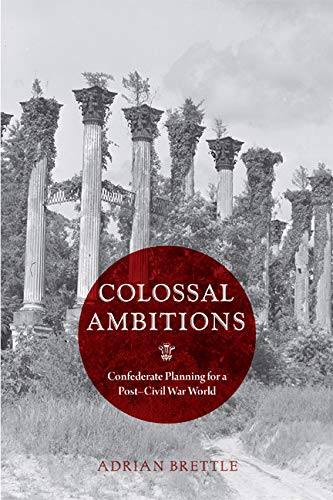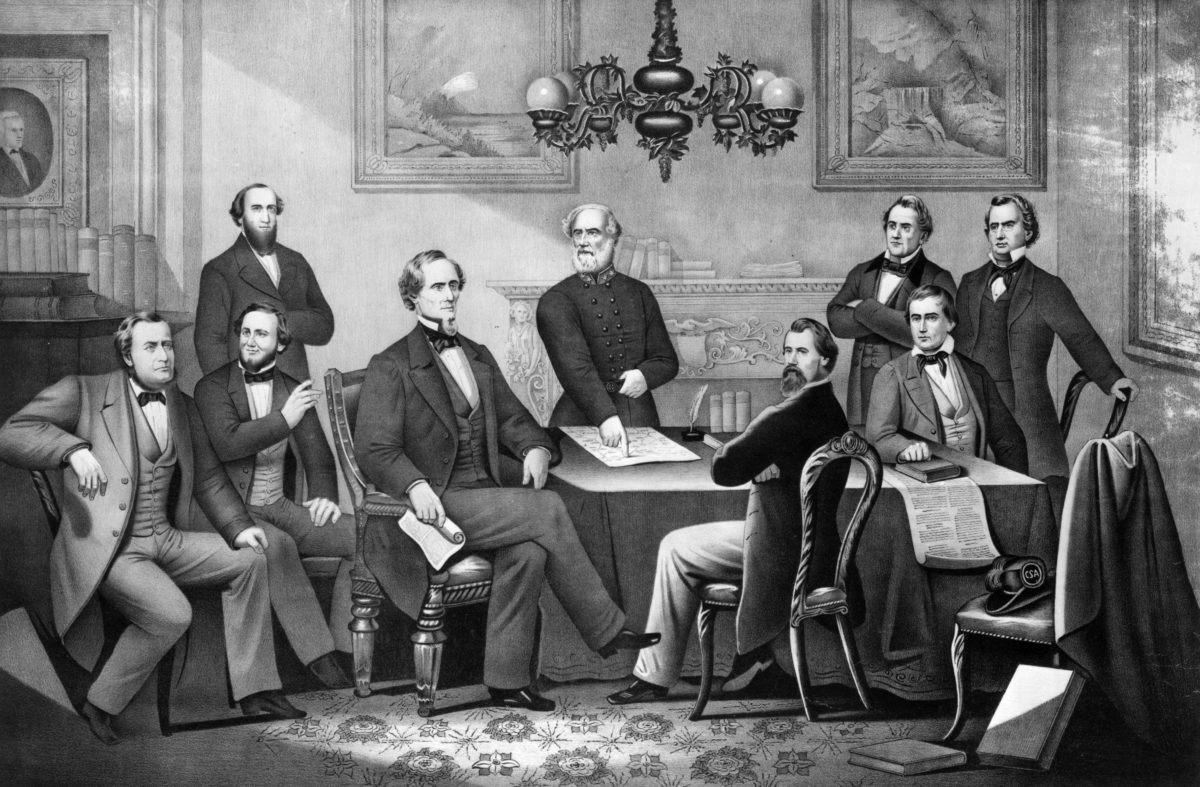Adrian Brettle’s aptly titled “Colossal Ambitions” tells an important story of the ambitious future the Confederacy’s leaders envisioned for their new nation. The CSA was to become a major player on the world stage, expanding to the south and west and knitting close commercial ties with the nations of Europe and the Caribbean as well as the Union.
Endowed with a firm belief in the South’s exceptionalism, members of the Southern hierarchy convinced themselves they were more tolerant than their Northern counterparts and, in the author’s words, possessed a “providential entitlement to a prominent place in the world.” These convictions manifested themselves in a succession of approaches to the larger world shaped by the progress of Confederate armies and shifting perceptions of the likelihood of an imminent peace.

Colossal Ambitions: Confederate Planning for a Post–Civil War World
By Adrian Brettle
University of Virginia Press, 2020, $45
This post contains affiliate links. If you buy something through our site, we might earn a commission.
These positions, as Brettle outlines, evolved from quasi-imperialism in 1861 to assertiveness in 1862, followed by a liberal internationalism in 1863 and, as peace seemed near, realism in 1864. By 1865, as the war dragged on, he argues that the Confederate purpose became “abstract, ideological and destructive; in short, it became a cause rather than a nation-building project.”
The author extends this insightful analysis, writing, “Instead of planning and implementing the future by means of practical steps toward achieving prosperity and security in a new nation, Confederates demanded sacrifices that transcended nation building.” It is but a small step from such demands in 1865 to the appearance of the myth of the Lost Cause and its 150-year-long conviction that the Confederate cause is morally exceptional.
Brettle reiterates several important themes. Slavery is the sine qua non of the Confederate experiment, and with it came the imperative for territorial growth. “We must expand or perish,” exclaimed Robert Toombs, the CSA’s first secretary of state. Such expansion was to serve two purposes: It provided a safety valve for the growing, often threatening concentration of the enslaved, and it opened new areas for cotton cultivation.
The Confederate attempt at nation building rested on its unshakeable devotion to slavery and an economy based on staple crops. Cotton was indeed king. Employed initially as an unsuccessful diplomatic tool to leverage recognition from European nations, the staple came to be seen as a considerable resource — an estimated 3 million bales, worth $600 million in 1864 — to help underwrite the expenses of the new nation once the fighting had stopped.
GET HISTORY’S GREATEST TALES—RIGHT IN YOUR INBOX
Subscribe to our HistoryNet Now! newsletter for the best of the past, delivered every Monday and Thursday.
But, Brettle explains, the consistent misinterpretation of Union war aims as well as the misbegotten belief that the enslaved would remain loyal helpmates ultimately undercut secessionists’ efforts. Although Lincoln’s Reconstruction policies contradicted Confederate hopes for retaining slavery and establishing a quasi-independent state, Southern leaders often acted as if the policies were just negotiating points, or, as Richmond journalist Edward Pollard argued, tactics that expressed “a matter of preference rather than passion.”
“Colossal Ambitions” is an important addition to our understanding of the Confederacy — the evolution of its war aims and national aspirations, and the reasons the efforts failed. While Brettle’s narrative lags at times and is on occasion repetitious, a persistent reader will walk away having learned a great deal.
historynet magazines
Our 9 best-selling history titles feature in-depth storytelling and iconic imagery to engage and inform on the people, the wars, and the events that shaped America and the world.






